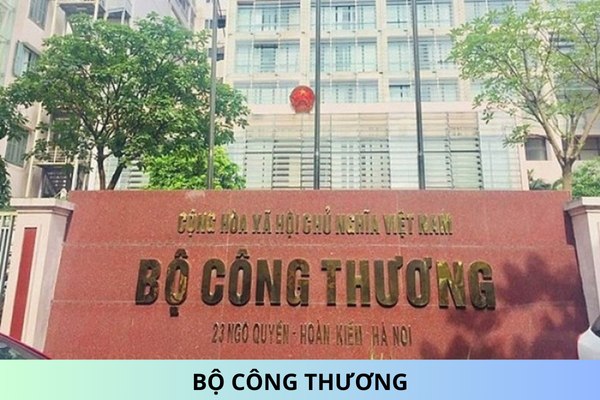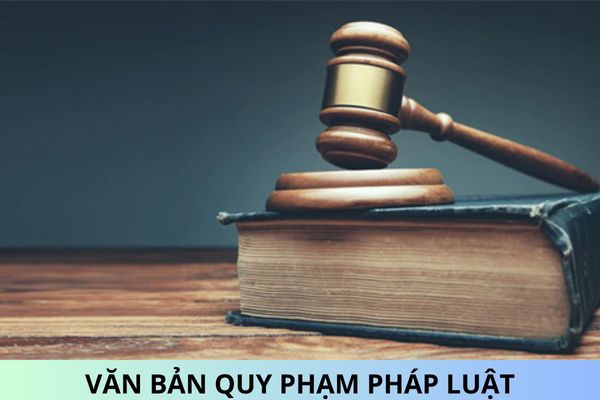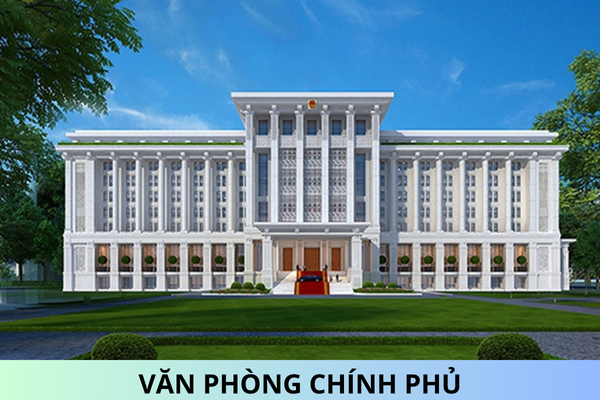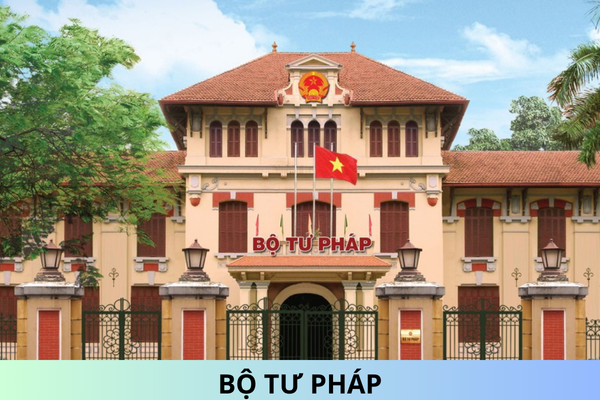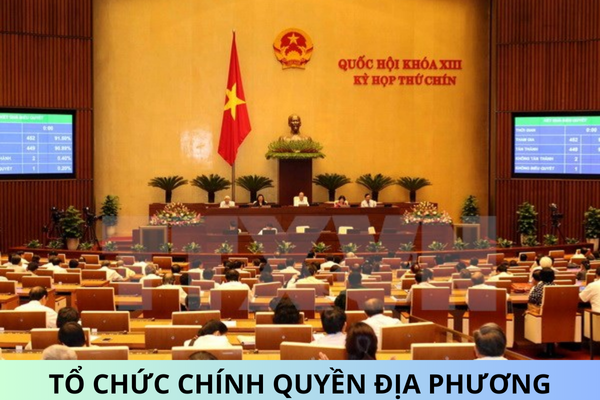Guidelines on implementing the principles of self-criticism and criticism for members of Vietnam Communist Party according to Regulation 232 in 2025
What are guidelines on implementing the principles of self-criticism and criticism for members of Vietnam Communist Party according to Regulation 232 in 2025?
Based on Sub-section 9.2 Section 9 of Regulation 232-QD/TW in 2025
9. Section 9: Several Regulations on Implementing the Principle of Democratic Centralism
[...]
9.2. (Clause 3): On implementing the principle of self-criticism and criticism.
9.2.1. Annually, the Politburo, the Secretariat, standing committees of the party committees from the immediate superior levels of grassroots party organizations and equivalents upwards, grassroots party committees, leaders of departments, sectors, and mass organizations, party committee members at all levels, and party members must conduct self-criticism and criticism, collectively and individually, reviewing their responsibilities to set an example; and have plans and measures to promote strengths and overcome limitations and shortcomings.
9.2.2. At the end of the congress term, the Central Committee of the Communist Party, the Politburo, the Secretariat, party committees, standing committees of the party committees, the Inspection Committee, party committee members at all levels, leaders of specialized agencies advising and assisting the Central Committee of the Communist Party and from all party committees must conduct self-criticism and criticism linked to reviewing and evaluating the implementation results of the congress resolutions.
[...]
According to the above regulation, the guidance on implementing the principle of self-criticism and criticism for Communist Party members is as follows:
[1] Annually, the Politburo, the Secretariat, standing committees of the party committees from the immediate superior levels of grassroots party organizations and equivalents upwards, grassroots party committees, leaders of departments, sectors, and mass organizations, party committee members at all levels, and party members must conduct self-criticism and criticism, collectively and individually, reviewing their responsibilities to set an example; and have plans and measures to promote strengths and overcome limitations and shortcomings.
[2] At the end of the congress term, the Central Committee of the Communist Party, the Politburo, the Secretariat, party committees, standing committees of the party committees, the Inspection Committee, party committee members at all levels, leaders of specialized agencies advising and assisting the Central Committee of the Communist Party and from all party committees must conduct self-criticism and criticism linked to reviewing and evaluating the implementation results of the congress resolutions.
The review process follows the regulations of the Politburo and ensures the following requirements:
- The review report of the party committee must gather contributions from the immediate lower party committee and leaders of departments, sectors, and mass organizations of the same level, and must include comments from the immediate superior party committee.
- The review report of the Inspection Committee and leaders of departments, sectors, and mass organizations must gather contributions from specialized agencies and from the party committee of the same level.
- The superior party committee suggests to individuals and collective party committees of immediate lower-level organizations and party organizations the contents that need to be clarified in self-criticism and criticism:
+ For individual party committee members, standing committee members, and inspection committee members: the focus should be on reviewing political responsibilities, the level of striving to complete assigned tasks, and other issues related to individual responsibilities; maintaining personal integrity (political ideology, ethics, lifestyle, obedience to the principle of democratic centralism, fighting against corruption, wastage, negativity, bureaucracy) and implementing Communist Party regulations on setting an example for cadres and party members.
+ For collective party committees, standing committees, and inspection committees: review the adherence to resolutions, directives, regulations, guidelines, and conclusions of the Communist Party and superior party committees; the formulation and results of implementing resolutions, directives, regulations, guidelines, and conclusions of their own level; building and implementing work regulations; strengthening internal unity, purity, strength; financial and land management, and other related areas; leading, directing, and organizing inspection, supervision, and party discipline tasks, resolving complaints and denunciations, and fighting against corruption, wastage, and negativity.
+ The standing committee of the superior party committee is responsible for consolidating, analyzing, and selecting issues to suggest for self-criticism and criticism by organizations and lower-level party committees.
- Gather contributions from the Fatherland Front, executive committees of political-social organizations, People's Councils of the same level, promoting the supervisory role and contribution to building the Communist Party by the people.

Guidelines on implementing the principles of self-criticism and criticism for members of Vietnam Communist Party according to Regulation 232 in 2025 (Image from Internet)
Who is required to perform self-criticism and criticism according to the Charter of the Vietnam Communist Party?
Based on Article 2 of the Communist Party of Vietnam Charter 2011:
Article 2.
Communist Party members have the duty to:
[...]
- Participate in the construction and protection of the Party's guidelines, policies, and organization; abide by discipline, maintain unity in the Party; regularly conduct self-criticism and criticism, be honest with the Party; engage in developing party members; participate in party activities and pay party membership fees conformable.
Based on Article 23 of the Communist Party of Vietnam Charter 2011:
Article 23.
Grassroots party organizations have the duty to:
- Abide by the Party's guidelines, policies, and State laws; formulate political directions and tasks of the Party committee, cell and effectively lead the implementation.
- Build a pure, strong Party committee, cell in terms of politics, ideology, and organization; accurately apply the principle of democratic centralism; improve the quality of party activities, regularly conduct self-criticism and criticism, maintain discipline, and enhance unity in the Party; consistently educate, train, and manage cadres and Party members, enhance revolutionary moral qualities, combativeness, knowledge level, and work capacity; undertake developing party members.
[...]
According to the above regulations, Communist Party members and grassroots Communist Party organizations have the duty to implement self-criticism and criticism.
What is the age of entry for the Vietnam Communist Party?
Based on Section 1 of Regulation 232-QD/TW in 2025 stipulating the age and educational level for entry into the Communist Party:
- Article 1 (Clause 2): Age and educational level of entry to the Communist Party
1.1. Regarding age.
1.1.1. At the time the cell considers membership, entrants to the Communist Party must be from 18 years old to up to 60 years old (calculated in months).
1.1.2. Admission to the Communist Party for individuals over 60 years old is reviewed and decided by the Central-level directly governing Party committee.
1.2. Regarding educational level.
1.2.1. Entrants to the Communist Party must possess a secondary education diploma or higher.
1.2.2. The education level of those entering the Communist Party who reside in mountainous areas, islands, ethnic minority regions, regions with particularly difficult socioeconomic conditions, and other specific cases requiring party development not following common regulations, are to be guided by the Secretariat.
The age of entrants to the Communist Party is from 18 to up to 60 years old (calculated in months). Moreover, admission to the Communist Party for individuals over 60 is reviewed and decided by the Central-level directly governing Party committee.


